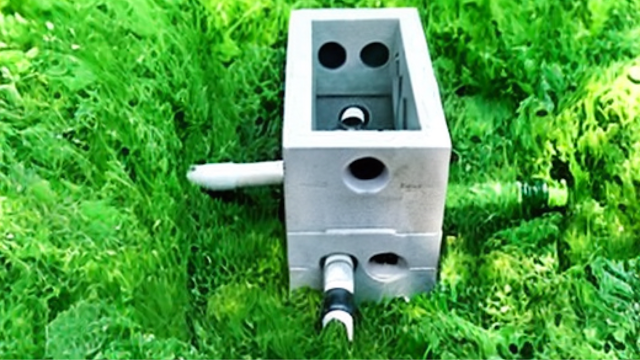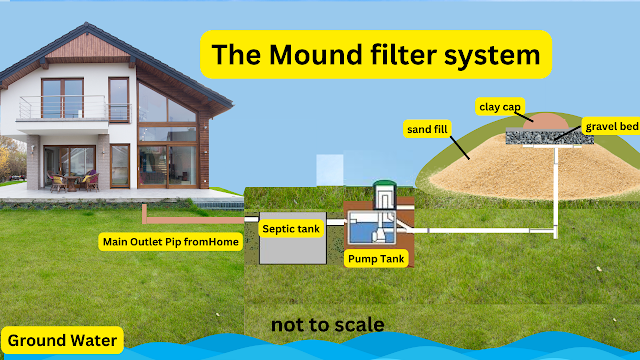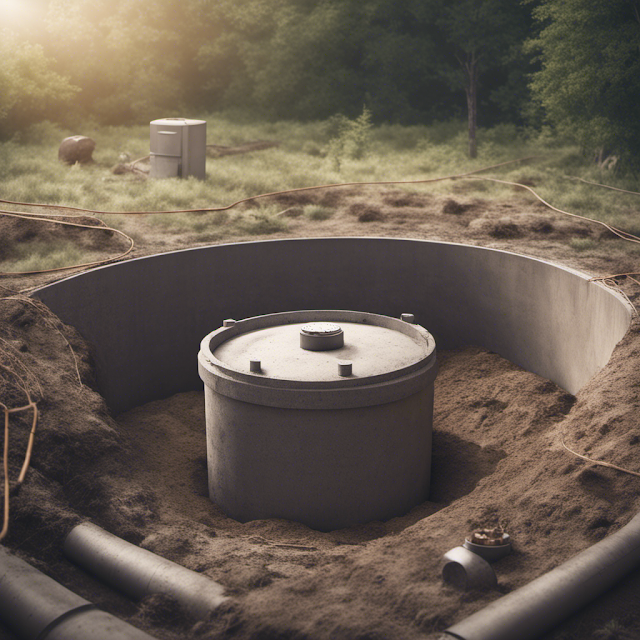Exploring the Benefits of Regular Septic Tank Pumping and Maintenance
 |
| Regular Septic Tank Pumping and Maintenance |
Are you aware of the adage 'an ounce of prevention is worth a pound
of cure'? When it comes to your septic tank, this rings true. By actively
maintaining and regularly pumping your septic tank, you can prevent costly
repairs and potential system failure.
In this article, we will explore the benefits of proper septic tank
maintenance and provide you with valuable tips on scheduling these essential
services. Stay tuned to learn how investing in regular maintenance can save you
from expensive repairs and ensure the longevity of your septic system.
Key Takeaways
•
Regular septic tank pumping
prevents backups and maintains system efficiency.
•
Neglecting septic tank
maintenance can lead to costly repairs and system failure.
•
Proper waste volume management
prevents tank overflows and damage to the drain field.
•
Environmental benefits of
regular pumping and maintenance include reduction in groundwater contamination,
preservation of ecosystem balance, protection of aquatic life, and ensuring a
healthier and safer environment.
Importance of
Regular Septic Tank Pumping
Regular
septic tank pumping is crucial for preventing backups and maintaining the
efficiency of your system. Neglecting septic tank maintenance can lead to
costly repairs and system failure. The importance of regular septic tank
pumping can't be overstated.
Over
time, solids and sludge accumulate in the tank, reducing its capacity to hold
wastewater. This can result in backups, clogs, and even sewage overflow. By
pumping your septic tank regularly, you ensure that it remains free from excess
solids, allowing it to function optimally.
The
frequency of septic tank pumping depends on factors such as tank size and waste
volume. On average, it's recommended to pump your septic tank every 3-5 years.
However, larger households or those with higher waste volumes may require more
frequent pumping.
Frequency of
Maintenance Based on Tank Size
To
ensure your septic system runs smoothly, it's crucial to schedule pumping and
maintenance services according to the size of your tank. Septic tanks are anintegral part of the septic system, responsible for storing and treating
wastewater. Understanding how septic tanks work can help determine the
necessary frequency of maintenance.
The
size of your tank plays a significant role in this decision. Smaller tanks
require more frequent pumping as they've limited storage capacity. For example,
a 1,000-gallon tank typically needs pumping every three to five years, while a
1,500-gallon tank can go five to seven years between services. It's important
to note that other factors such as household size and waste volume also
influence maintenance frequency.
Regular
pumping and maintenance are essential to prevent system failure and costly
repairs down the line.
Proper Waste Volume
Management
To
properly manage waste volume in your septic system, it's crucial to prevent
tank overflows, avoid drain field damage, and extend the overall lifespan of
your system.
By
carefully monitoring your waste output and ensuring that it remains within the
recommended capacity of your tank, you can prevent costly and potentially
hazardous situations.
Implementing
proper waste volume management practices won't only maintain the functionality
of your septic system but also contribute to a healthier and more sustainable
environment.
Preventing Tank Overflows
When your septic tank isn't
properly maintained, you risk experiencing messy and expensive tank overflows.
Tank overflows occur when the tank becomes overloaded with waste, leading to
backups and spills. According to data collected by septic experts, the average
household should schedule septic tank pumping every three to five years.
However, if you've a smaller tank or a larger waste volume, more frequent
pumping may be necessary.
Avoiding Drain Field Damage
By being mindful of what you
flush down your drains and practicing water conservation, you can prevent
damage to your drain field. The drain field is a crucial component of your
septic system, responsible for filtering and dispersing the liquid waste from the
septic tank into the surrounding soil.
To ensure its proper functioning
and longevity, it's important to avoid certain substances and behaviors that
can harm the drain field. Here are some key points to keep in mind:
•
Avoid flushing
non-biodegradable items such as wipes, diapers, and feminine hygiene products.
•
Be cautious with the use of
household chemicals, as some can disrupt the natural bacteria in the septic
system.
•
Practice water conservation by
fixing any leaks, using water-efficient appliances, and spreading out water
usage throughout the day.
Extending System Lifespan
To extend the lifespan of your
septic system, it's crucial to prioritize regular maintenance and pumping. By
adhering to a routine schedule, you can prevent issues that may lead to system
failure or costly repairs.
The accumulation of solid waste in
the tank can cause blockages and strain the entire system, resulting in a
decreased lifespan. Regular pumping removes these solids, reducing the risk of
clogs and ensuring optimal functionality.
Additionally, maintenance
activities such as inspecting the tank for leaks, checking the drain field for
proper absorption, and assessing the overall condition of the system can help
identify and address potential problems before they escalate.
When you invest in extending your
septic system's lifespan, you're safeguarding your investment and promoting
long-term efficiency and reliability.
Preventing
Costly Repairs Through Maintenance
By
implementing regular maintenance practices, you can prevent costly repairs and
extend the lifespan of your septic system.
Regular
inspections and servicing allow you to identify and address minor issues before
they escalate into major problems.
This
proactive approach not only saves you money in the long-term but also helps
avoid system failure and the need for extensive repairs.
Saves Money Long-Term
Regular septic tank
pumping and maintenance can save you money in the long run by preventing
expensive repairs and system failures. By investing in regular maintenance, you're
ensuring the smooth operation of your septic system, which in turn leads to
cost savings. Here's how:
•
Proper pumping and maintenance
can prevent septic tank backups and overflows, which can result in significant
damage to your property and costly repairs.
•
Regular pumping removes
accumulated solids from the tank, reducing the risk of clogs and blockages in
the drain field, which can be expensive to repair or replace.
•
Timely maintenance allows for
the early detection of any potential issues, such as leaks or cracks in the
tank, which can be addressed before they escalate into major problems.
Avoids System Failure
Avoiding system
failure is crucial, as it can lead to costly repairs and property damage.
Regular septic tank pumping and maintenance play a vital role in preventing
such failures.
A well-maintained
septic system ensures proper functioning and extends the lifespan of the
system. Neglecting maintenance can result in the accumulation of solid waste
and sludge, leading to clogged pipes, backups, and even septic tank overflow.
According to
industry experts, the average cost of repairing a failed septic system can
range from $3,000 to $7,000. Additionally, system failure can cause
contamination of groundwater, posing serious health risks to you and your
community.
Prevents Major Repairs
You can prevent
major repairs and costly expenses by ensuring your septic system is properly
maintained and serviced on a regular basis. Neglecting your septic system can
lead to various issues that require expensive repairs. Here are some key points
to consider:
•
Regular Pumping:
•
Pump your septic tank every 3-5
years, depending on the size of the tank and the number of occupants in your
household.
•
Regular pumping prevents solids
from accumulating and clogging the system, reducing the risk of major repairs.
•
Inspections:
•
Schedule regular inspections by
a professional to identify any potential issues before they become major
problems.
•
Inspections help detect leaks,
cracks, or other damages that, if left untreated, can result in costly repairs.
Avoiding System
Failure With Regular Pumping
To
prevent system failure, it's crucial to schedule septic tank pumping and
maintenance at recommended intervals. Neglecting these tasks can lead to a
range of problems, including overflowing tanks, clogged drainage fields, and
sewage backups.
Regular
pumping removes accumulated solids from the tank, preventing them from clogging
the system and causing costly repairs. The frequency of pumping depends on the
size of the tank and the amount of waste generated. For a typical household
with a 1,000-gallon tank, pumping every three to five years is recommended.
However, if your household has a larger tank or produces a higher volume of
waste, more frequent pumping may be necessary.
Extending the
Lifespan of Your Septic Tank
By
properly caring for and maintaining your septic tank, you can significantly
increase its lifespan. Regular maintenance is crucial in preventing system failure
and costly repairs.
Here
are some key steps you can take to extend the lifespan of your septic tank:
•
Schedule regular septic tank
pumping every 3-5 years, depending on the size of your tank and the volume of
waste generated.
•
Inspect your septic system
annually to identify any potential issues or signs of deterioration.
•
Properly dispose of household
waste, avoiding flushing non-biodegradable items or excessive use of chemicals.
•
Conserve water to reduce the
strain on your septic system. Fix any leaks promptly and practice
water-efficient habits.
•
Avoid planting trees or shrubs
near the septic tank or drain field, as their roots can infiltrate and damage
the system.
•
Educate yourself about your
septic system and follow best practices for its care and maintenance.
Following
these guidelines will help ensure the longevity and reliable performance of
your septic tank.
Benefits of
Professional Septic Tank Maintenance
Regular
maintenance by a professional can help prevent expensive repairs and system
failure, ensuring the reliable performance and longevity of your septic tank.
By
regularly inspecting and pumping your septic tank, a professional can identify
any potential issues before they escalate into major problems. This proactive
approach saves you money in the long run, as it prevents costly repairs and the
need for a complete system replacement.
Additionally,
regular maintenance helps to maintain the proper functioning of your septic
tank, ensuring that it effectively separates solids from liquids and prevents
any clogs or backups.
With
proper maintenance, your septic tank will continue to operate efficiently,
reducing the risk of system failure and extending its lifespan.
Don't
underestimate the importance of professional septic tank maintenance in keeping
your system running smoothly and avoiding unnecessary expenses. Also, explore the homeowner septic tank treatments available.
Environmental
Benefits of Regular Pumping and Maintenance
Don't
overlook the positive impact that consistent septic tank pumping and upkeep can
have on the environment. By properly maintaining your septic system, you can
significantly reduce the risk of pollution and contamination, ensuring a
healthier and safer environment for all.
Consider
the following benefits of regular pumping and maintenance:
•
Reduction in groundwater
contamination:
•
Regular pumping prevents the
seepage of untreated wastewater into the groundwater, minimizing the risk of
harmful pollutants reaching drinking water sources.
•
Proper maintenance ensures that
the system is functioning optimally, preventing leaks and spills that could
potentially contaminate nearby water bodies.
•
Preservation of ecosystem
balance:
•
By preventing the release of
excess nutrients and harmful bacteria into the environment, regular pumping and
maintenance help maintain the delicate balance of ecosystems, including rivers,
lakes, and oceans.
•
The removal of accumulated
solids during pumping prevents the spread of harmful pathogens, protecting
aquatic life and maintaining biodiversity.
Investing
in regular septic tank pumping and maintenance not only safeguards public
health but also plays a crucial role in preserving the environment for future
generations.
Frequently Asked Questions
How Long Does
the Process of Septic Tank Pumping Typically Take?
The process of septic tank pumping typically takes around 1-2 hours.
It involves a professional pumping out the tank using specialized equipment.
Regular pumping helps prevent backups and system failure.
Can I Perform
Septic Tank Pumping and Maintenance Myself, or Is It Better to Hire a
Professional?
It's better to hire a professional for septic tank pumping and
maintenance. They have the expertise to ensure it's done correctly, preventing
costly repairs or system failure. Don't risk it yourself.
Are There Any
Specific Signs or Indicators That My Septic Tank May Need Pumping or
Maintenance?
You may notice signs like slow drains, sewage backups, or foul
odors, indicating the need for septic tank pumping or maintenance. Regular
servicing helps prevent costly repairs and system failure, ensuring a properly
functioning septic system.
What Are Some
Common Mistakes to Avoid When It Comes to Septic Tank Pumping and Maintenance?
Avoid these common mistakes with septic tank pumping and
maintenance: neglecting regular service, overloading the system with excessive
water or waste, using harsh chemicals, and ignoring warning signs of potential
issues.
Are There Any
Alternative Methods or Technologies Available for Septic Tank Maintenance That
Are More Environmentally Friendly?
There are alternative methods and technologies available for septic
tank maintenance that are more environmentally friendly. These include aerobic
treatment systems, composting toilets, and greywater recycling systems. They
can help reduce water usage and minimize the impact on the environment.
Conclusion
In conclusion, regular septic
tank pumping and maintenance are essential for the longevity and optimal
functioning of your septic system.
By investing in these
services, you can avoid costly repairs and potential system failure.
While some may argue that the
cost of maintenance is a burden, consider the long-term benefits and cost
savings compared to the expense of repairing or replacing your entire septic
system.
Take proactive measures now to
ensure a healthy and efficient septic system for years to come.



.png)






Comments
Post a Comment